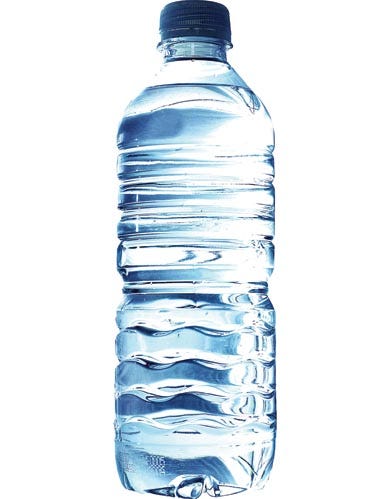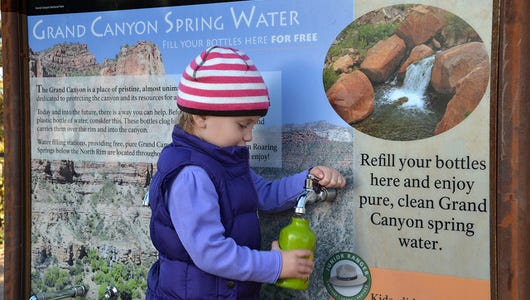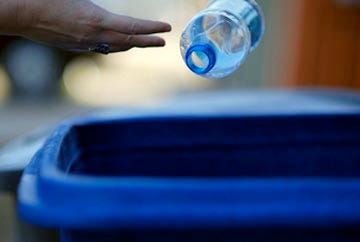You already know that talk of politics or religion brings about spirited and emotional debates. Would you be surprised to know that bottled water has a similar effect? Yes, the package, typically made out of polyethylene terephthalate (PET), has received quite a bit of attention in recent years, both positive and negative.
April 22, 2013
You already know that talk of politics or religion brings about spirited and emotional debates. Would you be surprised to know that bottled water has a similar effect? Yes, the package, typically made out of polyethylene terephthalate (PET), has received quite a bit of attention in recent years, both positive and negative.
In 2011, total U.S. bottled water consumption increased to 9.1 billion gallons; up from 8.75 billion gallons in 2010, according to the Beverage Marketing Corp. Per-capita consumption was up 3.2% in 2011, and the firm estimates every person in America drank an average of 29.2 gallons of bottled water last year.
Still, not everyone is on board with the bottle. In September 2012, Massachusetts Attorney General Martha Coakley upheld the banning of bottled water sales in the town of Concord, MA.
 In the U.S. and Canada, at least 35 universities or colleges have banned or restricted the sale of bottled water, and another 10 have sought to restrict their use, according to the Association for the Advancement of Sustainability in Higher Education. Some estimates are as high as 90 colleges and universities.
In the U.S. and Canada, at least 35 universities or colleges have banned or restricted the sale of bottled water, and another 10 have sought to restrict their use, according to the Association for the Advancement of Sustainability in Higher Education. Some estimates are as high as 90 colleges and universities.
Clearly, there are opposing views when it comes to bottled water. And perhaps two of the most outspoken parties are The International Bottled Water Association and the Corporate Accountability International. Their most recent battle is around restricting access to bottled water in America's national parks. PlasticsToday went beyond the press releases to talk with both parties about their viewpoints.
Ban the bottle
Erin McNally-Diaz, senior organizer for the Corporate Accountability International, believes there is plenty of misleading information out there regarding bottled water.
"Bottled water corporations have attempted to change the way we think about water, which is a basic human right, to make it a commodity," she said. "In other words, they are manufacturing this sort of demand when we already have access to clean and safe water on a tap."
The Corporate Accountability International is a 35-year-old membership organization that "protects the environment, public health and human rights from corporate abuse." The group's Think Outside the Bottle campaign works to promote and ensure public funding for the country's public water systems, while at the same time, challenges the "misleading marketing" of the bottled-water industry.
One of its big tasks is encouraging America's parks to go bottled water free.
"There is a clear alternative to bottled water - the public water systems," McNally-Diaz said. "People are turning back to the tap because they recognize it's the best way to ensure that everyone has access to water."
Last year, the Grand Canyon began to phase out the sale of plastic bottles. Prior to that ban, the Grand Canyon National Park estimated that disposable bottles accounted for 20% of the park's waste and 30% of its recyclables.
National Park estimated that disposable bottles accounted for 20% of the park's waste and 30% of its recyclables.
Zion National Park and Hawaii Volcanoes are among the 14 national parks out of 403 that have restricted bottled usage and installed hydration stations to encourage the usage of reusable bottles. Parks such as Mount Rainier, Golden Gate National Recreation Area (GGNRA) and Yosemite are also considering bottled water bans or restrictions, according to Corporate Accountability.
McNally-Diaz said that brands such as Coca-Cola and others in the bottled water industry use the parks to "profit at the public's expense."
"Why spend tax dollars to recycle waste when parks can avoid generating it in the first place?" she said. "When parks are going bottled water free, it sends the right message that this is the best choice for the environment and for the pocketbook."
Environmental stewardship & bottled water
You can hear the irritation in IBWA VP of Communications Chris Hogan's voice when he talks about the Corporate Accountability International.
"Frankly, the group that is pushing this, the Corporate Accountability International, is very much an anti bottled water group and this is their latest approach trying to attack bottled water," he said. "That's not industry spin, it's a pretty clear pattern that they have."
IBWA calls itself the source of information about all types of bottled waters. Founded in 1958, IBWA's membership includes U.S. and international bottlers, distributors and suppliers.
Hogan believes bans are misdirected.
"If the discussion was truly about reducing waste, groups like Corporate Accountability, would not be targeting bottled water in PET," he said. "When it comes to plastic packaging, PET containers have the lightest footprint of any plastic beverage."
 The National Association for PET Container Resources (NAPCOR) shows PET plastic bottled water containers are the single most recycled item in nationwide curbside collection programs. The national recycling rate for single-serve PET plastic bottled water containers is now 38.6%; a figure that has more than doubled in the last seven years.
The National Association for PET Container Resources (NAPCOR) shows PET plastic bottled water containers are the single most recycled item in nationwide curbside collection programs. The national recycling rate for single-serve PET plastic bottled water containers is now 38.6%; a figure that has more than doubled in the last seven years.
"Where some of these debates get disingenuous is trying to eliminate this form of package in the marketplace, when what we need to talk about is the better use of recycling for all kinds of plastics," he said.
Hogan said that he knows in the U.S., there is not enough recycled material to meet demand for recycled content in packaging. A lot of companies that manufacture the products out of recycled plastic have to import PET to get what they need to make product.
"By encouraging more people to recycle, the easier it will be to increase the usage of recycled PET without having to import outside the country, which is a goal to strive for domestically," he said.
At the end of the day, he doesn't believe there is a war between bottled and tap water. But, for example, on those hot summer days at the parks, consumers should have the option of choosing bottled water.
"From our perspective, that is not a debate - we are fully supportive of municipal water systems and we want to have a strong and viable tap water system," he said. "This is not an issue of the bottled water industry trying to take over the world or restrict the water supply. Environmental stewardship is part of the bottled water industry's history and we believe it just makes sense to encourage recycling rather than restricting."
About the Author(s)
You May Also Like


